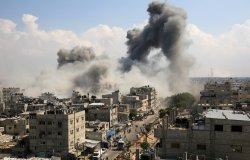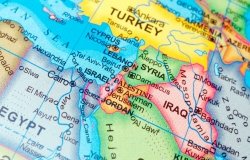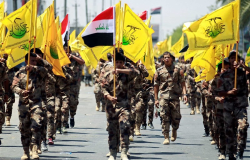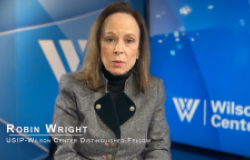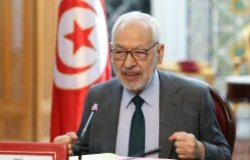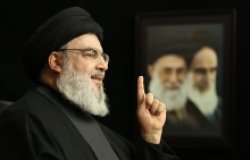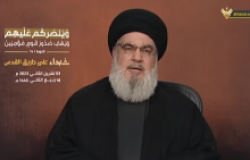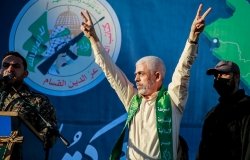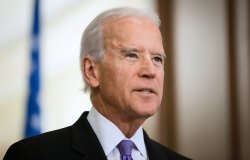Amnesty Intl Report: Egypt’s Human Rights Crisis
Egypt is facing a dire human rights crisis, according to a new report by Amnesty International. Security forces have “enjoyed near-total impunity for such human rights violations, government opponents, activists and journalists have been jailed for criticizing the authorities or challenging their narrative of events since the ousting of President Mohamed Morsi,” according to the wide-ranging report.
Egypt is facing a dire human rights crisis, according to a new report by Amnesty International. Security forces have “enjoyed near-total impunity for such human rights violations, government opponents, activists and journalists have been jailed for criticizing the authorities or challenging their narrative of events since the ousting of President Mohamed Morsi,” an Islamist. The government has also failed to take decisive action to combat discrimination or end violence against women and religious minorities, according to the report, based on a submission to the United Nationals Universal Periodic Review. The following are excerpts.
Egypt is facing a human rights crisis, with thousands detained as part of a wide-ranging crackdown on dissent, over 1,400 people killed in protests and political violence in the last year alone, and torture and other ill-treatment rife in prisons and police stations. While the security forces have enjoyed near-total impunity for such human rights violations, government opponents, activists and journalists have been jailed for criticising the authorities or challenging their narrative of events since the ousting of President Mohamed Morsi. The authorities have also taken few steps to address discrimination and violence against women and religious minorities, as well as the far-reaching poverty that fuelled the uprising in 2011.
Since the 2011 uprising, security forces have routinely used excessive force against protesters, resulting in hundreds of deaths, and subjected detainees to torture and other ill-treatment, while enjoying near-total impunity for these violations. Amnesty International is further concerned about the lack of due process for detainees and unfair trials, including the use of military courts to try civilians, the handing down of hundreds of death sentences following grossly unfair proceedings and the criminal prosecution of government opponents, activists and journalists for criticizing the authorities. Amnesty International has also documented attacks against religious minorities, sexual assaults against women protesters, and the use of excessive force and threats of refoulement against refugees, asylum-seekers and migrants.
PROMOTION AND PROTECTION OF HUMAN RIGHTS ON THE GROUND
EXCESSIVE AND UNNECESSARY USE OF FORCE
Since the 2011 uprising, the security forces have repeatedly used unnecessary and excessive, including lethal, force to disperse demonstrations, causing hundreds of deaths. During the “25 January Revolution”, the security forces killed at least 840 demonstrators and others, as well as a number of prisoners. Since the ousting of President Morsi on 3 July 2013, over 1,400 people have died in protests and political violence, many due to excessive and unnecessary force by the security forces.
TORTURE AND OTHER ILL-TREATMENT
Since the 2011 uprising, detainees have continued to report torture or other ill-treatment by the security forces upon arrest and in detention. Under the rule of the Supreme Council of the Armed Forces (the SCAF), military personnel have also tortured detainees. At least 80 detainees died in custody in the year since Mohamed Morsi’s ousting as president on 3 July 2013, according to WikiThawra, an initiative run by the Egyptian Center for Economic and Social Rights.
LACK OF DUE PROCESS, UNFAIR TRIALS AND SELECTIVE JUSTICE
Since July 2013, the security forces have arrested thousands of Morsi supporters, detaining many without access to lawyers, families and any means to challenge the lawfulness of their detention.
According to official estimates published by the Associated Press in March 2014, at least 16,000 people have been detained over the past year as part of a sweeping crackdown against Mohamed Morsi’s supporters and other groups and activists that have expressed dissent. Other estimates are much higher. According to WikiThawra, more than 40,000 people were detained or indicted between July 2013 and mid-May 2014.
FREEDOMS OF EXPRESSION, ASSOCIATION AND ASSEMBLY
Since the uprising, journalists and activists have faced criminal investigation and prosecution for criticising the authorities, public officials or religion. Some journalists have also faced unfair military trials.
Successive governments have maintained arbitrary restrictions on the registration, funding and activities of NGOs, and the security forces have raided NGO offices.
On 23 June 2014, a court jailed Al Jazeera English staff Mohamed Fahmy, Peter Greste and Baher Mohamed after convicting them of broadcasting false news and involvement with the Muslim Brotherhood. In 12 court sessions, the Prosecution failed to produce a single shred of solid evidence linking the journalists to a terrorism organization or proving they had “falsified” news footage. An Amnesty International trial observer recorded several irregularities, with prosecutors obstructing the defendants’ right to review and challenge the evidence presented against them.
SEXUAL AND GENDER-BASED DISCRIMINATION AND VIOLENCE
Women continue to face discrimination in public life and their right to work. For decades, women have been excluded from representation in law-making bodies, the government and the judiciary. During SCAF rule, women protesters faced state violence from the army and security forces, including forced “virginity tests” in March 2011. Women and girls continue to face high levels of sexual harassment and, since late 2012, women protesters have faced repeated sexual attacks around Cairo’s Tahrir Square.
RELIGIOUS MINORITIES
Religious minorities have reported an upsurge in discriminatory attacks. Coptic Christians have faced rising violence, culminating on 14 August 2013, with dozens of attacks on churches, businesses and homes in which the security forces failed to intervene. Shi’a Muslims have also faced attacks.
Coptic Christians faced an unprecedented level of violence after the Rabaa al-Adawiya dispersal on 14 August 2013; sectarian attacks left four dead and 200 Christian properties and 43 churches damaged. The authorities said the attacks were “terrorism”, yet failed to ensure adequate, impartial and independent investigations – including into the security forces’ failure to prevent and stop the violence.
Click here for the full text.
Related Program

The Islamists
Learn more about Hamas and how it relates to similarly aligned organizations throughout the region. Read more
